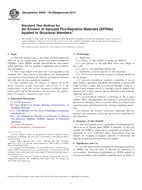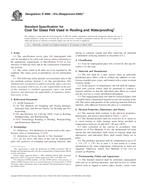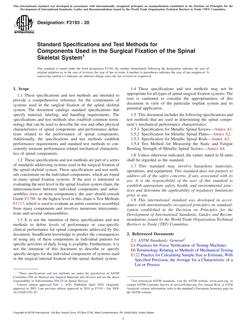1.1 Forensic paint analyses and comparisons are typically distinguished by sample size that precludes the application of many standard industrial paint analysis procedures or protocols. The forensic paint examiner must address concerns such as the issues of a case or investigation, sample size, complexity and condition, environmental effects, and collection methods. These factors require that the forensic paint examiner choose test methods, sample preparation schemes, test sequence, and degree of sample alteration and consumption that are suitable to each specific case.
1.2 This guide is intended as an introduction to standard guides for forensic examination of paints and coatings. It is intended to assist individuals who conduct forensic paint analyses in their evaluation, selection, and application of tests that may be of value to their investigations. This guide describes methods to develop discriminatory information using an efficient and reasonable order of testing. The need for validated methods and quality assurance guidelines is also addressed. This document is not intended as a detailed methods description or rigid scheme for the analysis and comparison of paints, but as a guide to the strengths and limitations of each analytical method. The goal is to provide a consistent approach to forensic paint analysis.
1.3 Some of the methods discussed in this guide involve the use of dangerous chemicals, temperatures, and radiation sources. This guide does not purport to address the possible safety hazards or precautions associated with its application. This standard does not purport to address all of the safety concerns, if any, associated with its use. It is the responsibility of the user of this standard to establish appropriate safety and health practices and determine the applicability of regulatory requirements prior to use.
Product Details
- Published:
- 04/01/2008
- Number of Pages:
- 13
- File Size:
- 1 file , 230 KB
- Redline File Size:
- 2 files , 480 KB


